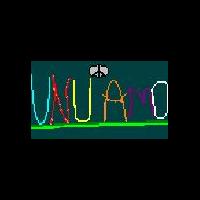讯息: 14
语言: English
tommjames (显示个人资料) 2009年9月3日下午1:21:59
horsto (显示个人资料) 2009年9月3日下午3:29:07
erinja (显示个人资料) 2009年9月3日下午3:52:37
If a child finds a wallet on the street, what is the "right thing" to do? From one point of view, the "right thing" is to keep it, because it likely contains money. But if this child's father should come up and say "Do the right thing", it is clear to us that the father wants the child to take the wallet to the police, or somehow try to find its owner.
In that respect I'd translate the phrase as "Agu juste"
ĝusta means right as in, not incorrect
justa means right in the sense of being just and morally right.
It depends on the nuance you want though. The phrase could also be used in cases where morals weren't at stake, only difficult decisions.
diogotux (显示个人资料) 2009年9月3日下午4:14:04
Faru la dekstran aferon.
The best translation ever.
Mendacapote (显示个人资料) 2009年9月3日下午4:50:55
mnlg (显示个人资料) 2009年9月3日下午7:56:32
I think that 'agu ĝuste' can be a fitting translation, at least in a few occasions. My dictionary also suggests 'agu laŭ via bontrovo', or 'agu taŭge'.
Also 'agu saĝe' could work.
ceigered (显示个人资料) 2009年9月4日上午1:17:01
diogotux:Very simple:
Faru la dekstran aferon.
The best translation ever.
 Translating that back into English could be a bit awkward
Translating that back into English could be a bit awkward russ (显示个人资料) 2009年9月4日下午7:19:17
Greyshades (显示个人资料) 2009年9月8日上午3:55:30
Mendacapote:Erinja is right: Agu juste pli taŭgas.She always is

I'd say either "agu juste" aŭ "faru juste" would be easily understandable and get the meaning across

tommjames (显示个人资料) 2009年9月8日上午9:22:26
Faru la justan aferon appears only once in Google and Faru la ĝustan aferon doesn't appear at all, so I'm guessing this is a vernacularism of English that doesn't appear in Esperanto. The only reason I ask is forms like agu juste could be read as a general manner of behavior, whereas "the right thing" seems to suggest a single act. It would be nice if I could conserve this nuance.








